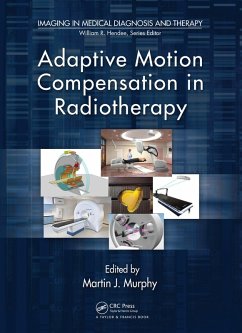This book provides a detailed treatment of online interventional techniques for motion compensation radiotherapy. It explains how adaptive motion intervention is imaging-intensive and relies on near real-time image acquisition and processing. With a focus on the strategy of online motion compensation, the book discusses necessary motion detection methodology, repositioning methodology, and how to interpret and respond to target movement data in real time. It covers methods of detection and correction and then offers examples. It also gives attention to the distinct problems in dose planning and delivery posed by each adaptation technology.
Dieser Download kann aus rechtlichen Gründen nur mit Rechnungsadresse in A, B, BG, CY, CZ, D, DK, EW, E, FIN, F, GR, HR, H, IRL, I, LT, L, LR, M, NL, PL, P, R, S, SLO, SK ausgeliefert werden.


